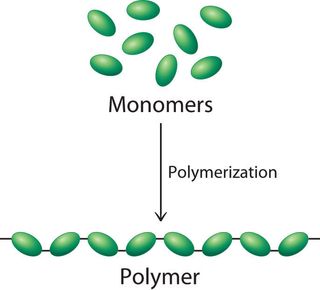Custom Polymers: Tailored Solutions for Unique Applications
Custom Polymers: Tailored Solutions for Unique Applications
Blog Article
Exploring the Varied Applications and Benefits of Polymers in Different Industries
Polymers, with their diverse array of homes and performances, have actually ended up being essential in numerous sectors, each reaping one-of-a-kind benefits from their application. From enhancing safety and security and performance in the automotive market to reinventing medical devices in the healthcare market, polymers play a pivotal function.
Automotive Market Applications
Polymers play a pivotal duty in boosting the efficiency and toughness of different parts within the automotive sector. One famous usage of polymers in the automobile market is in the manufacturing of lightweight components.

Medical Care Industry Advantages
In numerous health care applications, the advantages of utilizing polymers are widely acknowledged for their diverse variety of valuable residential or commercial properties. Polymers play an important role in the healthcare market due to their versatility, biocompatibility, and cost-effectiveness. One of the main benefits of polymers in health care is their ability to be customized to specific requirements, such as versatility, durability, and biodegradability, making them suitable for a wide array of clinical applications.
Polymer-based materials are thoroughly used in clinical tools, such as catheters, implants, prosthetics, and medication delivery systems, due to their biocompatibility and capacity to simulate natural cells. These materials can minimize the risk of sensitive reactions or rejections, boosting person safety and results. In addition, polymers are lightweight, making them suitable for wearable clinical tools and making certain client comfort.
Additionally, polymers enable the growth of innovative treatment approaches, such as hydrogels for cells engineering and nanocomposites for targeted medication distribution. Their convenience of processing and sanitation makes them important for maintaining high requirements of health in healthcare settings. In general, the varied advantages of polymers add considerably to developments in clinical technology and individual care.
Environmental Benefits of Polymers

Furthermore, polymers can add to energy savings because of their lightweight nature. In sectors such as transport, lightweight polymer products can help in reducing fuel intake and greenhouse gas discharges. Additionally, polymers can make it possible for the growth of energy-efficient check my reference items such as insulation materials that boost energy preservation in buildings.
In addition, polymers play an essential function in minimizing water pollution. The use of polymer-based filtering systems can efficiently get rid of contaminants and pollutants from wastewater, securing water sources and ecological communities. Overall, the environmental advantages of polymers make them valuable possessions in promoting sustainability and green techniques throughout different industries.
Polymers in Electronic Devices and Innovation
Thinking about the enhancing need for ingenious and lasting options in modern industries, the combination of sophisticated polymer modern technologies in the realm of electronics and innovation has become a crucial approach for driving performance and performance. Polymers have transformed the electronics market by allowing the production of lighter, extra adaptable, and durable electronic gadgets. From smartphones to medical devices, polymers play a critical function in boosting product layout and functionality.
One considerable advantage of polymers in electronic devices is their insulating residential properties, which aid protect delicate digital elements from ecological variables and electric interference. Furthermore, polymers are vital in the development of versatile display screens, wearable modern technology, and published electronics, offering limitless possibilities for creating smart and interconnected tools.
Furthermore, making use find of polymers in digital product packaging has resulted in innovations in miniaturization and thermal management, boosting the total efficiency and reliability of digital systems. As technology proceeds to advance, the versatility and versatility of polymers will unquestionably drive even more development in the electronics sector, forming the future of modern technology.
Duty of Polymers in Building and Facilities
Polymers provide numerous benefits in the building and construction industry due to their convenience, durability, and cost-effectiveness. One crucial role of polymers in building and construction is their use in finishes and sealers, giving protection against environmental factors such as dampness, UV radiation, and deterioration.
Additionally, polymers play an important duty in sustainable construction methods by allowing the development of energy-efficient structures. Insulating materials made from polymers assist control indoor temperatures, minimizing the demand for home heating and cooling systems and this link ultimately decreasing power intake. The use of polymer-based compounds in framework jobs such as bridges and roads improves their longevity and lowers upkeep costs. In general, the consolidation of polymers in construction and infrastructure showcases their substantial impact on modern design practices.
Conclusion
To conclude, polymers play an important duty in various industries such as automotive, medical care, environmental, electronics, and building. Their functional residential properties make them valuable in developing ingenious remedies and items. From improving gas effectiveness in lorries to improving medical gadgets, polymers use various benefits. In addition, their influence on minimizing waste and advertising sustainability highlights their value in modern-day applications. The prevalent use polymers demonstrates their substantial payment to advancing technology and enhancing lifestyle.
Report this page